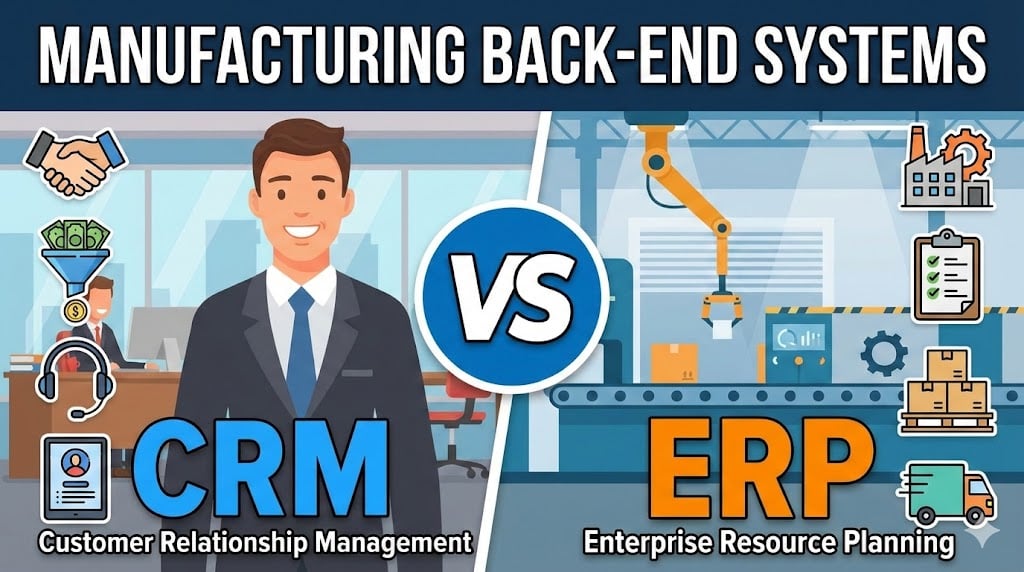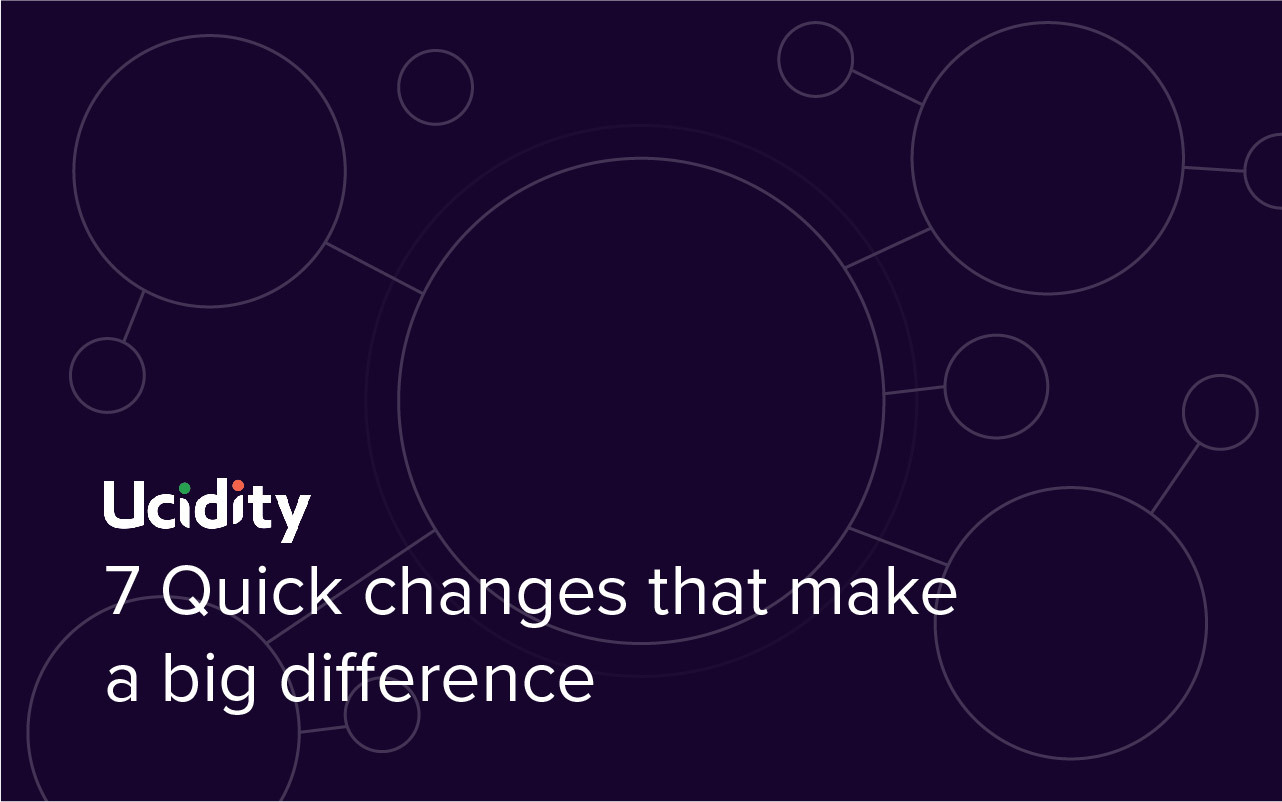
Content Marketing | 5 min read

Deciding when to bring in a Customer Relationship Management (CRM) system is critical for businesses of all sizes. A CRM system can streamline and automate sales, marketing, and customer service processes but also requires time and resources.
However, bringing in a CRM may not be as easy as expected, considering it’s a new process. We all know that change isn't immediately well-accepted in the workplace. It could be a long process of implementation, testing and evaluation. But, if you’re determined to roll out a system that will change the way you work and look at data, the least you can do is ensure that the tool you’re implementing:
- Is introduced at the right time of need
- Has a resource for the end-to-end process of implementation, training and maintenance
- Has a robust support system
- Has a knowledge base where you can self-study and learn more about maximising your CRM.
The cost is an essential factor in choosing a CRM. Considering the price of a CRM system is a critical aspect of the decision-making process. CRM solutions can range from free to very expensive, depending on the features and capabilities offered. When choosing a CRM system, it is essential to have a clear understanding of your budget.
Consider the long-term benefits and ROI that a CRM system can provide. Increased sales, improved customer satisfaction, and streamlined processes can all lead to increased revenue and cost savings. While the initial cost of a CRM system may be significant, it is important to weigh this against the potential long-term benefits. Make sure to choose a CRM system that fits within your budget and ties into your business needs.
It is common for businesses to have a hard time accepting that they need help, especially when implementing a CRM system. Some business owners may feel they have been successful without a CRM system and fear change will disrupt their success. Others may feel that a CRM system is an unnecessary expense or do not have the time or resources to implement one.
Recognising that a CRM system can help a business grow and become more efficient, regardless of its success, is important. A CRM system can help a business keep pace with its competitors and continue to succeed in an increasingly competitive market by streamlining sales, marketing, and customer service processes. By accepting that their business needs help, business owners can take the first step towards a more prosperous future.
Once a CRM is implemented, businesses are amazed at the benefits they experience after implementing a CRM system. A well-set-up CRM system can streamline and automate sales, marketing, and customer service processes, making them more efficient and effective. It can also provide valuable insights into customer behaviour and preferences, helping businesses to make data-driven decisions.
In addition, a CRM system can improve communication and collaboration among team members, leading to better customer experiences and increased customer satisfaction. As a result, businesses often increase sales and revenue after implementing a CRM system. With all these benefits, let's look into some factors that might convince you to invest in a CRM.

1. Missed Sales Opportunities
Without using a Customer Relationship Management (CRM) system, many businesses miss valuable sales opportunities. A CRM system helps businesses track and manage their sales leads, ensuring that no opportunities slip through the cracks. It also provides a centralised database for storing customer information, making it easy for sales teams to access the information they need to close deals.
Sales teams may rely on manual processes and disparate systems, making tracking leads and customer interactions difficult. This can lead to missed sales opportunities and a lack of visibility into the sales pipeline and customer behaviour. By implementing a CRM system, businesses can ensure they take advantage of all valuable sales opportunities and can better manage their sales processes.
The risk of losing a good prospect increases during uncertain economic times could be higher. In a volatile market, prospects may be hesitant to make significant purchasing decisions or may be looking for more cost-effective solutions. Businesses that need a solid understanding of their sales pipeline and customer behaviour are at a higher risk of losing good prospects during these times.
A CRM system can help mitigate this risk by providing real-time insights into the sales pipeline and customer behaviour, allowing businesses to make data-driven decisions and quickly adjust their strategies to meet changing market conditions. By implementing a CRM system, businesses can reduce the risk of losing good prospects and continue to drive sales even during uncertain economic times.
2. Lack of Visibility in Your Business
It becomes challenging to track and manage customer interactions and data in a centralised location. This leads to a lack of visibility into the performance of your sales, marketing and customer service efforts, making it challenging to identify areas for improvement and make data-driven decisions. Furthermore, the absence of a CRM system can result in poor customer experiences, as customer information may not be easily accessible by all team members, leading to missed opportunities or duplicated efforts.
-1.jpeg?width=8484&height=1768&name=February%20CRM%20Blog%202%20Image%203%20(2)-1.jpeg)
3. Staff Are Stressed and Demotivated.
Repeating manual and time-consuming tasks such as data entry, tracking customer interactions and updating customer information cause your team to lose motivation. Your staff is meant to do what they’re good at and not spend hours and hours doing manual admin work. These tasks take valuable time away from more important responsibilities, such as building customer relationships and growing the business. By automating these tasks through a CRM, sales, marketing, and customer service teams can focus their time and energy on activities that drive revenue and create a competitive advantage.
When a CRM system is in place, employees can focus on what they do best by automating routine tasks such as data entry, tracking customer interactions, and updating customer information. This frees up time and resources that can be better utilised to build relationships with customers, generate new business, and provide exceptional customer service. Additionally, a CRM provides a centralised location for all customer information, allowing employees to access the information they need to do their jobs effectively and provide better customer experiences.
4. The Added Cost (investment) Needs To Happen
While it's true that a CRM system can be an added cost to a business, the investment is well worth it in the long run. A CRM streamlines and automates many routine tasks, freeing up time and resources for employees to focus on more important responsibilities.
It also provides valuable insights into customer behaviour, sales and marketing performance, and customer service interactions, helping businesses make data-driven decisions and improve overall performance. Additionally, a CRM can help improve the customer experience by providing a centralised location for customer information, allowing for a more personalised and consistent approach to customer interactions.
The cost savings and improved efficiency resulting from a well-implemented CRM more than make up for the initial investment, making it a critical component of a successful business strategy.experiences
5. The Need To Scale and Grow
The business will come to a point when it needs to scale and eventually get out of its old shell. This means getting rid of ancient practices that may already be redundant or tools that may need to be more efficient. A CRM system can play a crucial role in helping a business scale and eliminate old and inefficient processes. By automating routine tasks such as data entry and tracking customer interactions, a CRM allows employees to focus on more important responsibilities, freeing up time and resources. The centralised location for all customer information provided by a CRM also helps improve the accuracy and efficiency of customer interactions, leading to better customer experiences and improved customer retention. Additionally, a CRM can provide valuable insights into sales and marketing performance, allowing a business to identify areas for improvement and make data-driven decisions.
Are you looking at scaling your business soon? Reach out to Ucidity, and let’s talk about how a CRM system can help you scale and thrive in an increasingly competitive marketplace by streamlining processes and providing valuable insights!
Published on February 15, 2023

%20-%20TikTok%20for%20Business%20-%20Does%20it%20work.jpg)


